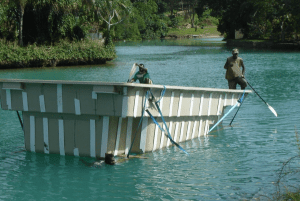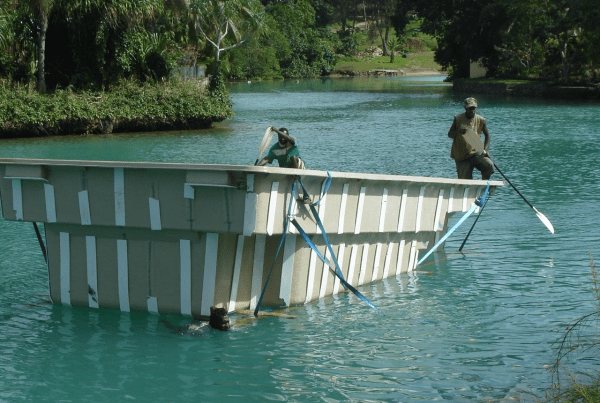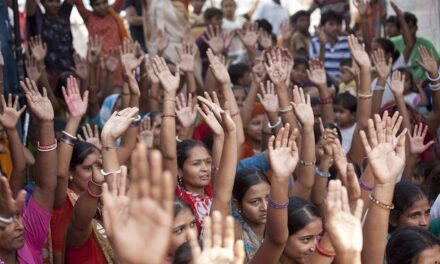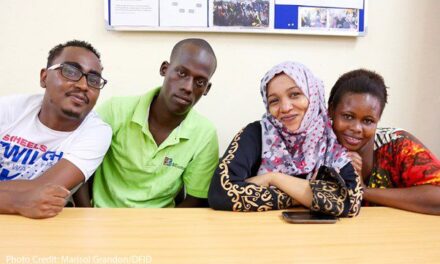
Skills Development for Productive Lives in the Pacific: A Symposium at the 2013 UKFIET International Conference on Education and Development
Photo: Men rowing a swimming pool in Vanuatu
Joining the dots: building the skills
Fourteen small island countries of the South Pacific are striving to deliver education and other basic services to their citizens while simultaneously advancing the process of regional integration. Building the skilled human resources necessary to secure their future is a challenge where the tertiary participation rate averages less than 10%.
Promising approaches to post-secondary reform are emerging from two regional and two national initiatives showcased in the Symposium.
UKFIET Conference Preview
This is part of a series of previews introducing Symposia, Round Tables and Sub-Themes at the forthcoming 12th UKFIET International Conference on Education and Development to be held 10-12 September in Oxford, UK. Please leave your comments and questions about the Symposium below.
Michael Clemens presents the results of a research collaboration between the Center for Global Development and the Australian National University, asking why less than 2% of graduates of the Australia Pacific Technical College have migrated, even though the College started life as a regional skills development program explicitly linked to international labour mobility.
Rajesh Chandra of the University of the South Pacific explores efforts to resolve the collective action problems that constrain the development of tertiary education in the region.
A Case Study of an AusAID-supported TVET program in Vanuatu illustrates the value of working creatively on the border between formal and informal labour markets and skills development systems. An innovative approach in Papua New Guinea suggests reform initially based around quality assurance is having an impact, despite limited political and agency will at start-up.





